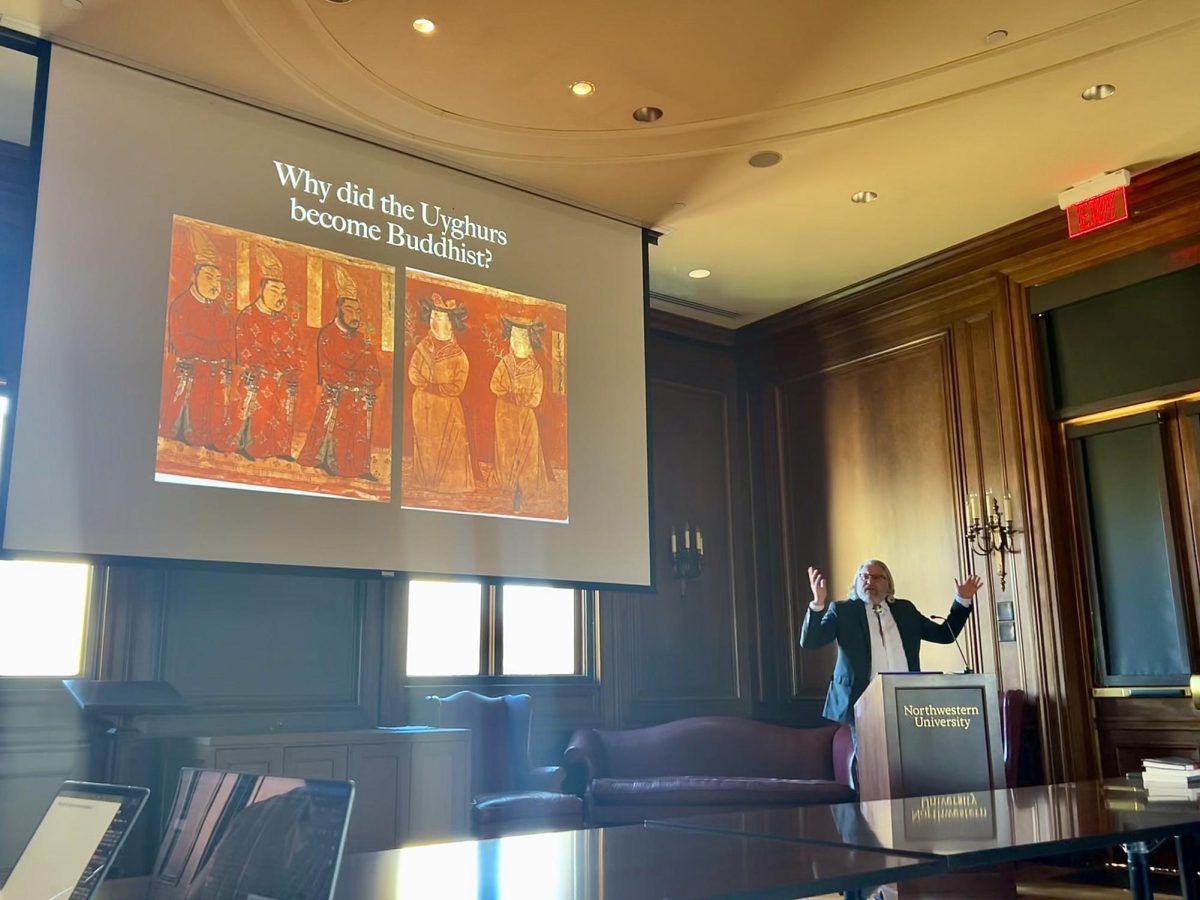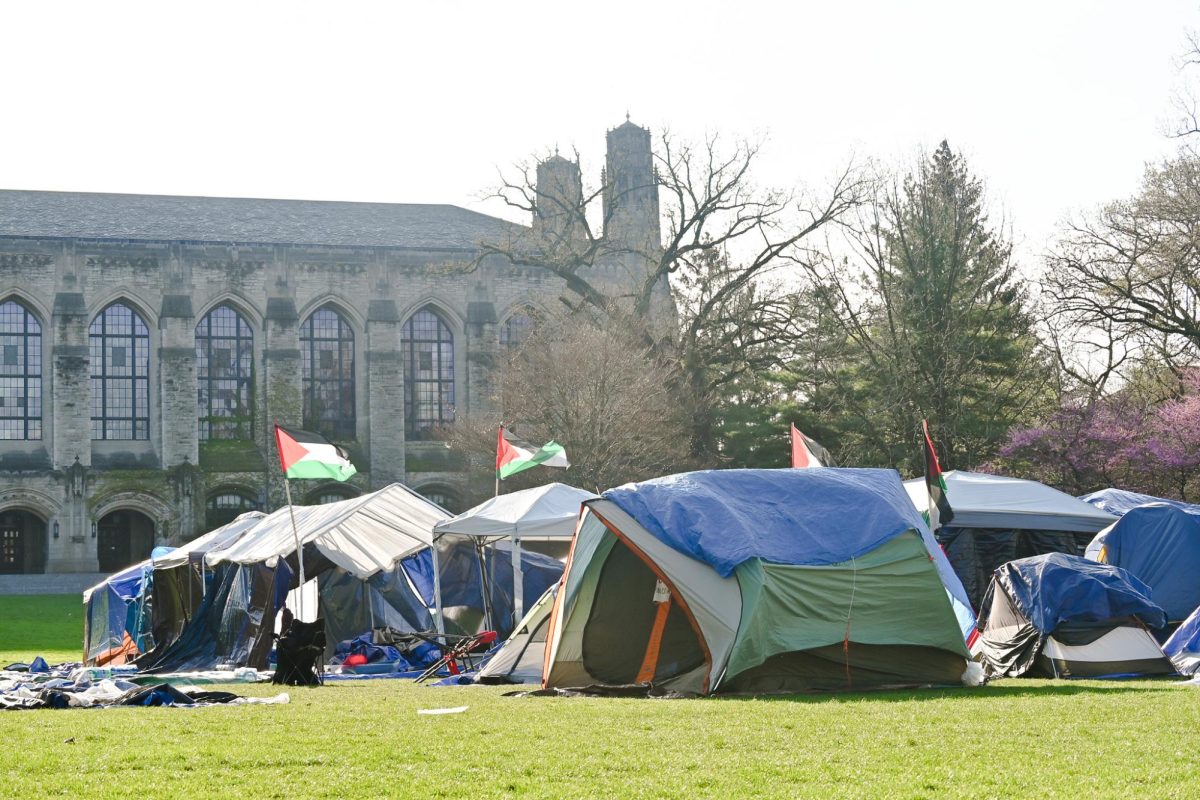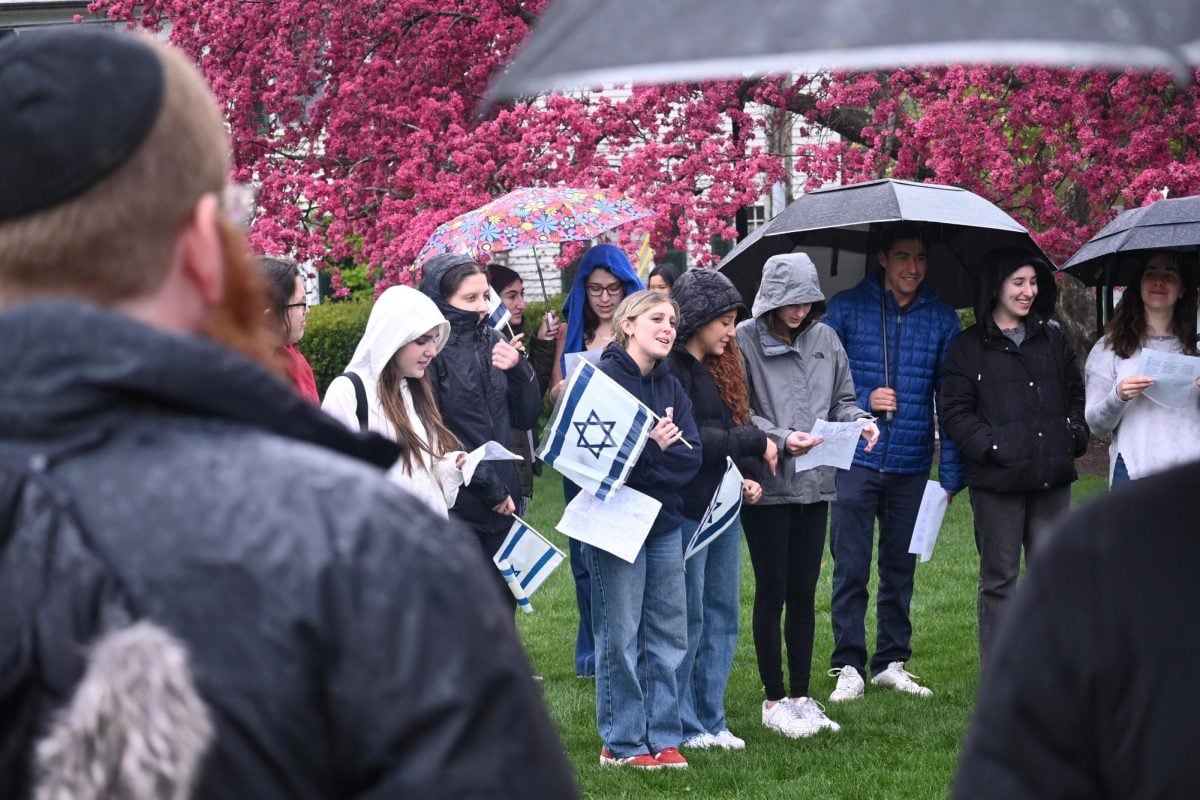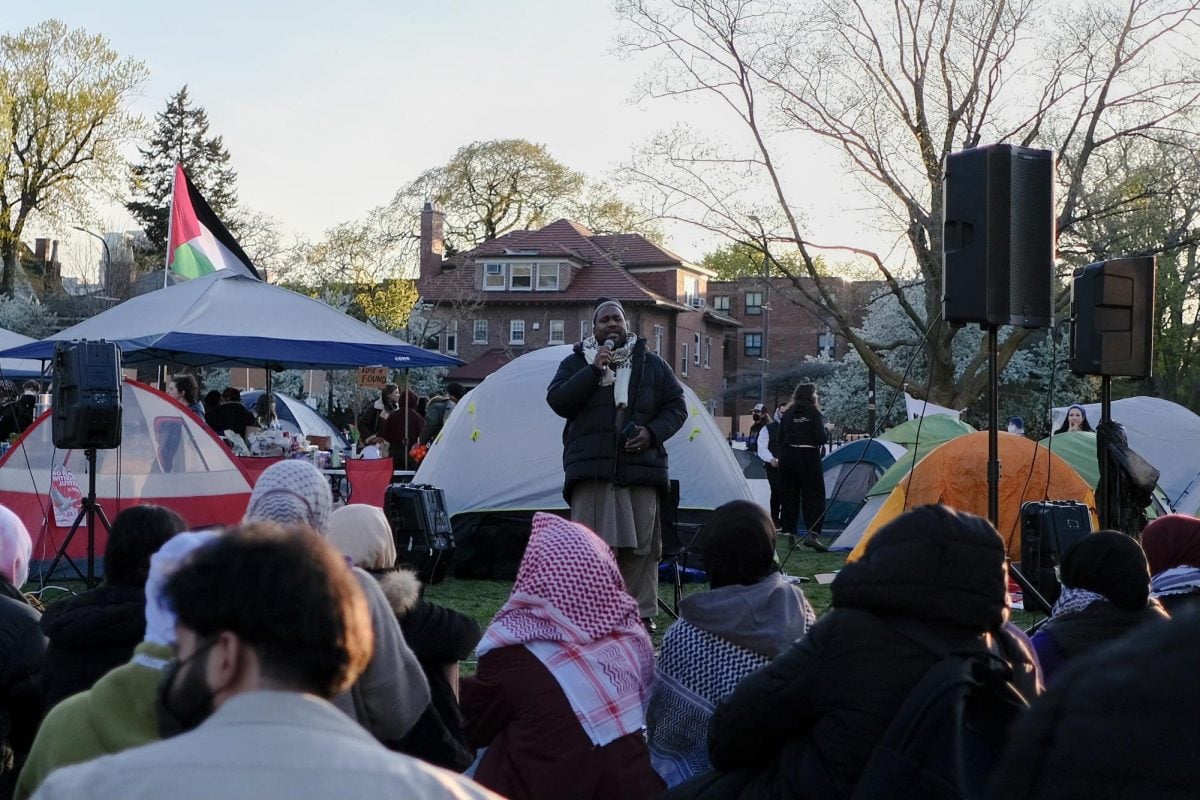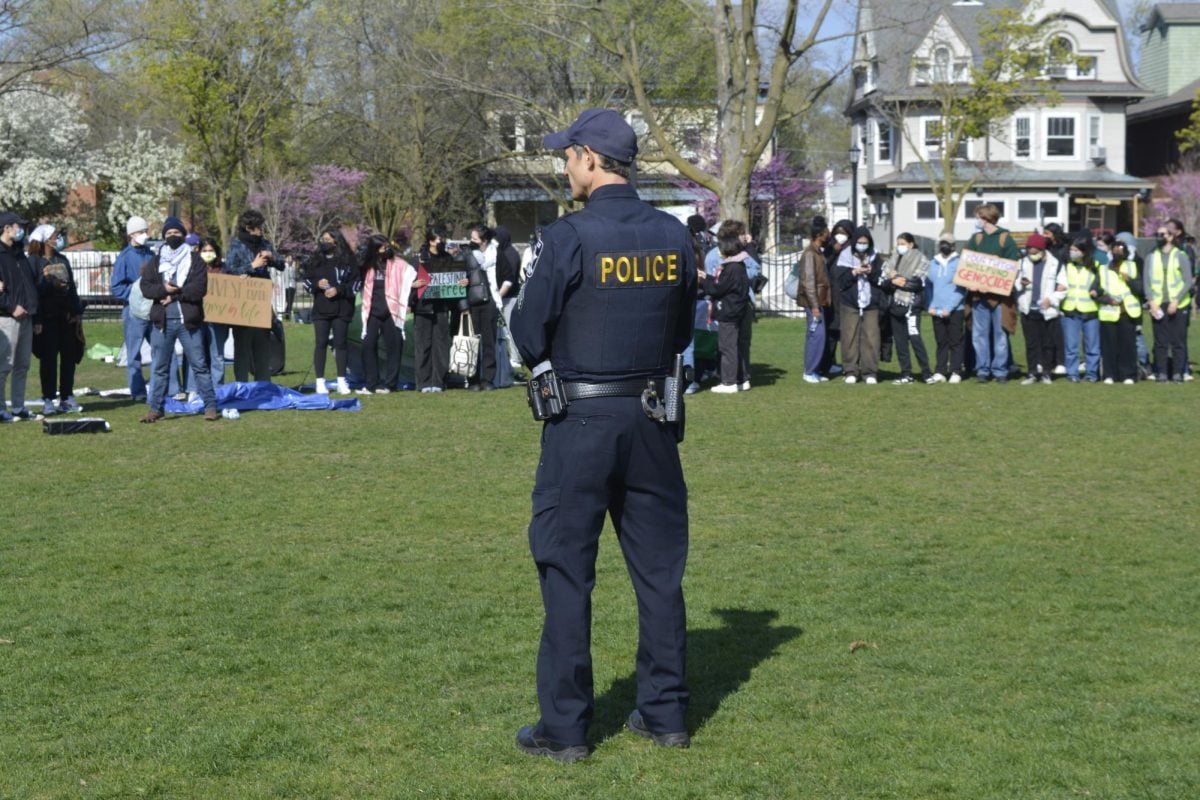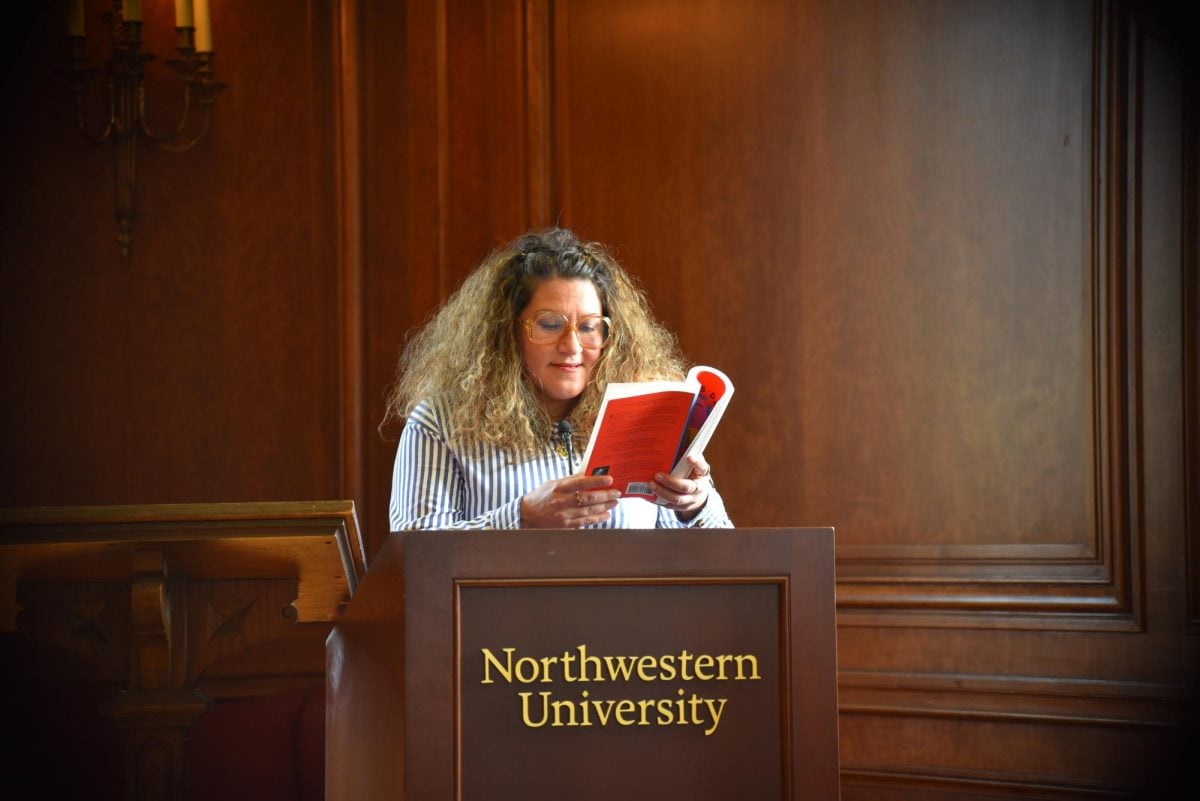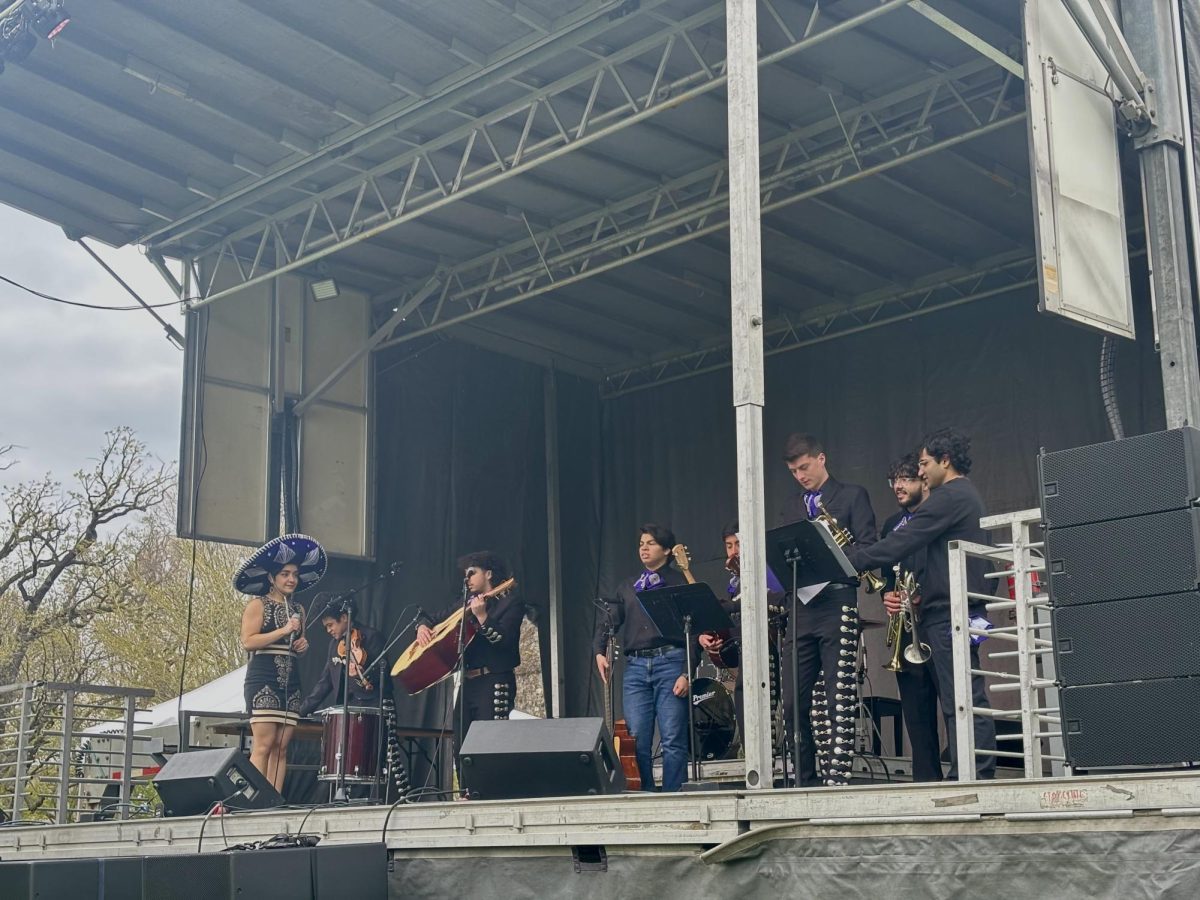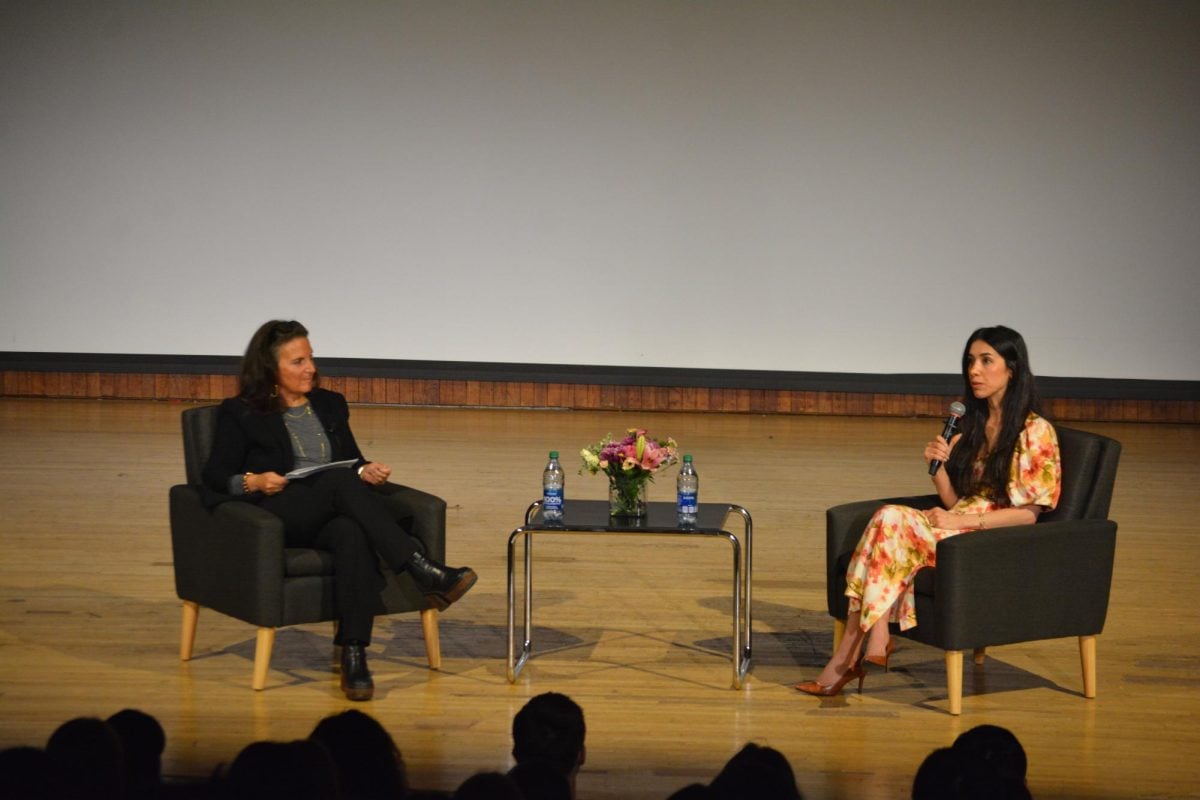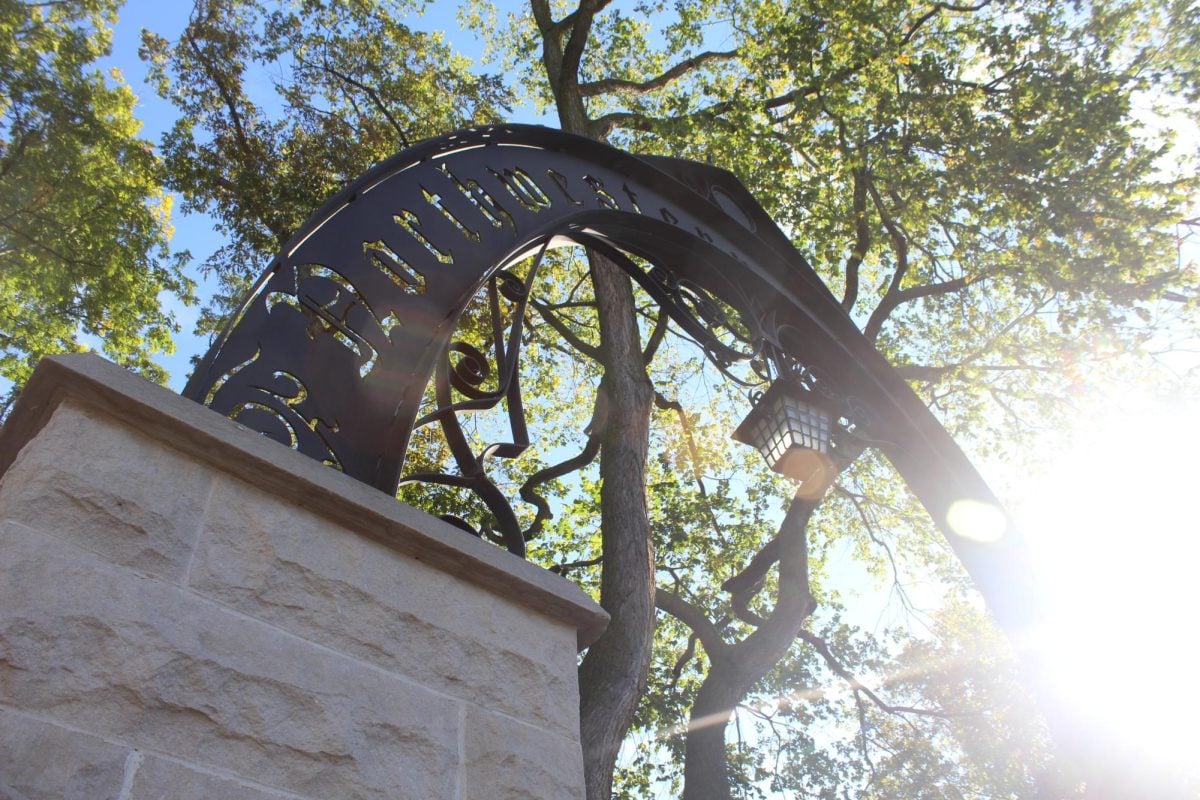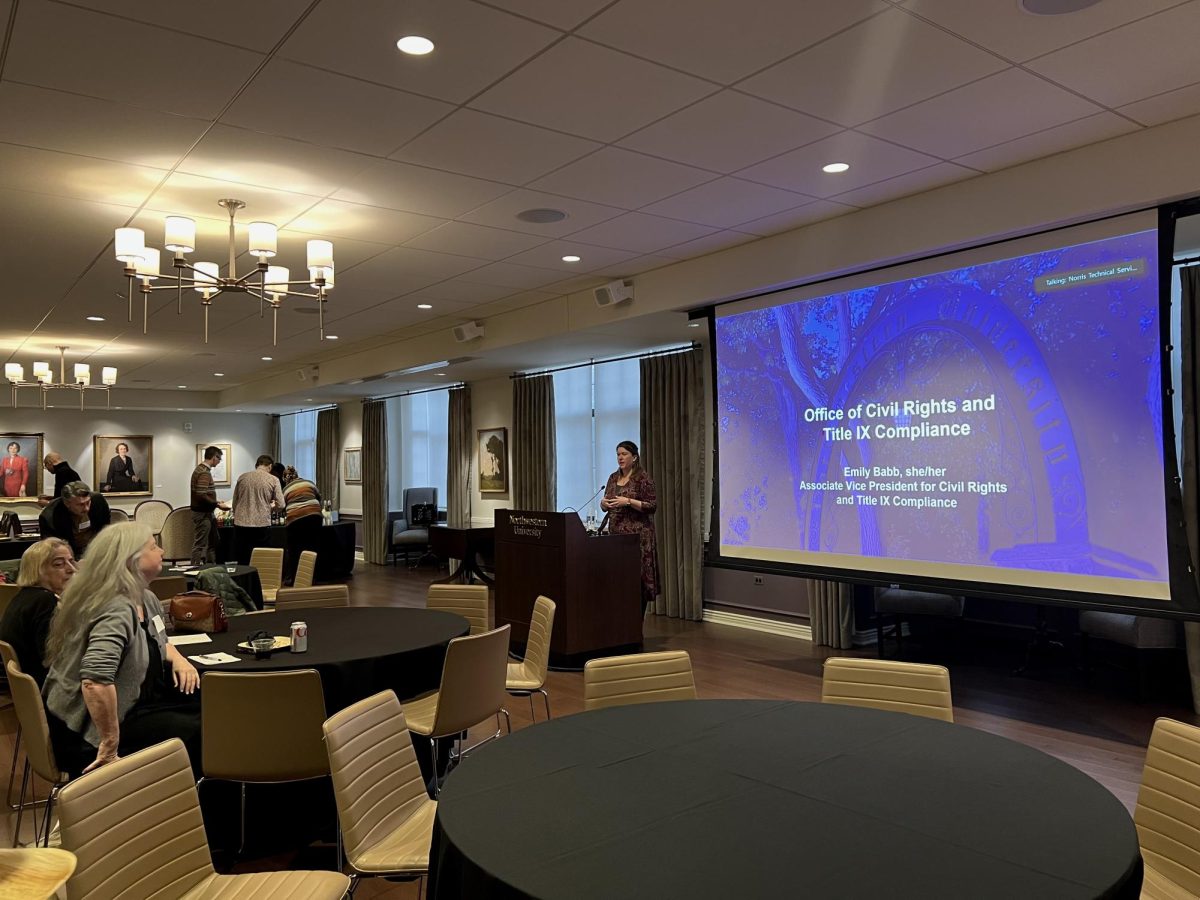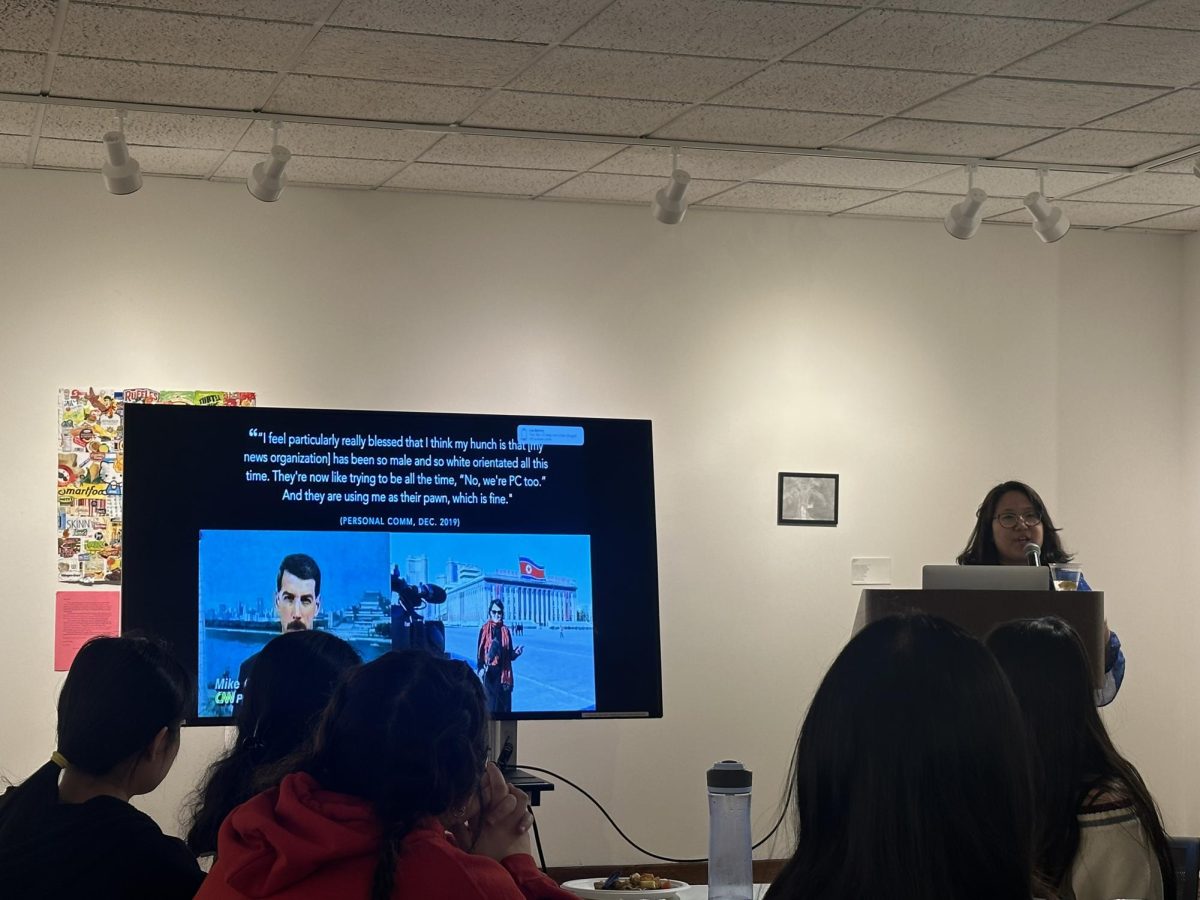Southern Methodist University religious studies and history Prof. Johan Elverskog came to Northwestern Thursday to give a lecture on the historic Uyghur transition to Buddhism in Harris Hall.
About 30 students and faculty gathered to hear Elverskog’s lecture as part of the East Asia Research Forum’s series of speaker, workshop and screening events. The History Department co-sponsors the series and recommends speakers for the Forum to host.
Elverskog authored and edited 11 books and numerous articles on topics including Sino-Asian and Buddist history. His Thursday lecture focused on the Uyghurs, an ethnic group of the Xinjiang region in China that started practicing Buddhism over 1,000 years ago but is predominantly Muslim today.
The United States Institute of Peace describes the Uyghurs as the target of human rights abuses and religious persecution. Over one million Uyghurs have been imprisoned in “re-education centers” within the past decade.
In Aug. 2022, the United Nations’ Office of the High Commissioner for Human Rights published a report on concerns of Beijing’s human rights violations. The U.S., UK and Canada are among countries that have called out China’s “genocide and crimes against humanity,” according to BBC.
History Prof. Jonathan Brack said he suggested Elverskog for the series because his scholarship in Buddhist studies and inter-religious exchanges was a valuable supplement to his course, “History 300-0: The Mongol Empire.”
Speakers like Elverskog bring together different audiences and introduce new ideas to the classroom, he said.
“I think it’s important for the teacher that we show our students often that what we’re talking about actually has relevance to a wider academic community and not just what happens in the classroom,” Brack said.
Many students taking related history courses were in the audience. Weinberg freshman Erika Castaneda said she did not know much about Buddhist Uyghurs prior to the event but was glad she attended after her professor extended the opportunity.
“It’s always really interesting and a privilege to learn about different topics, especially things that are outside my field of study,” Castaneda said. “The spread of religion should be studied. It’s a big part of everyone’s lives and can be observed in a lot of developed countries.”
Elverskog said that Buddhism is commonly ignored in Asian history, but its prevalence in all parts of society and the human experience pushed the Uyghurs to convert to Buddhism.
Elverskog previewed the first chapter of his upcoming book, “A History of Uyghur Buddhism.” He began by explaining the misconceptions of contemporary and Uyghur Buddhism being a way to project social status and forgive wealth production.
“That is not all that Buddhism does, rather it also brings with it a whole system of thought,” he said. “We need to avoid the pervasive, critical, secular stance, whereby religion is simply a smokescreen for something else: politics, economics, or invariably something negative.”
Email: [email protected]
X: @kelleylu_
Related Stories:
— Thomas Christensen provides global perspective on music theory

